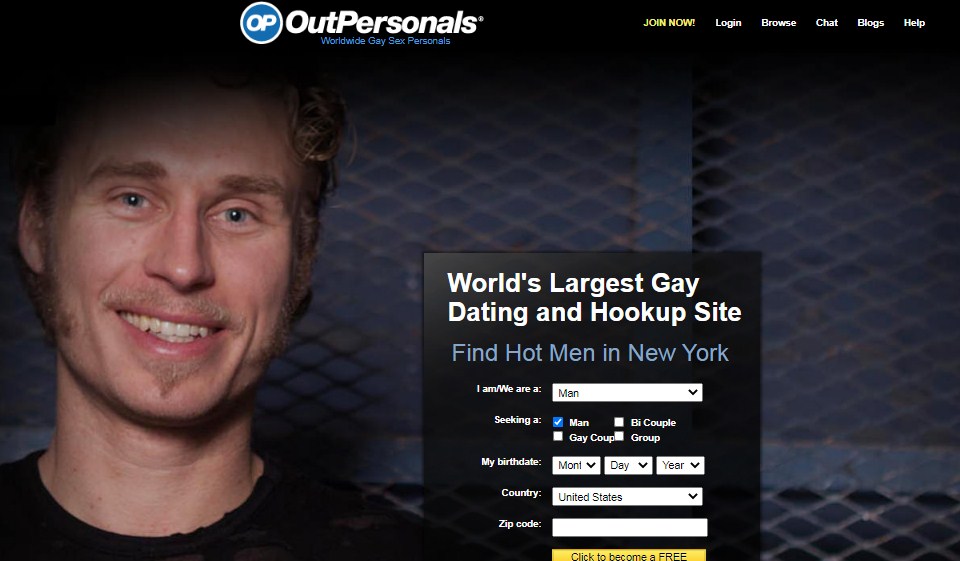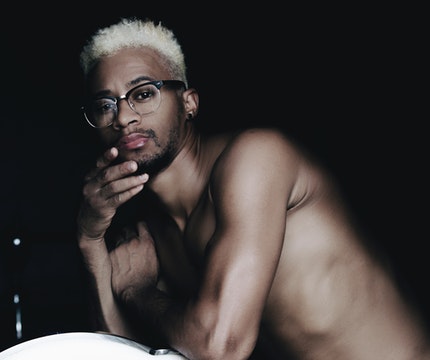No products in the cart.
Sex on Campus
Identity-
Free
Identity
Politics
A study from
the agender,
aromantic, asexual
front line.
Pictures by
Elliott Brown, Jr.
NYU course of 2016
“Currently, we declare that i will be agender.
I’m removing myself personally through the personal construct of gender,” says Mars Marson, a 21-year-old NYU film major with a thatch of quick black colored locks.
Marson is talking-to me personally amid a roomful of Queer Union students in the class’s LGBTQ college student center, in which a front-desk bin supplies cost-free buttons that let site visitors proclaim their own preferred pronoun. In the seven pupils gathered at the Queer Union, five prefer the singular
they,
designed to denote the sort of post-gender self-identification Marson talks of.

Marson was born a girl naturally and arrived as a lesbian in twelfth grade. But NYU ended up being the truth â somewhere to explore transgenderism and then reject it. “I really don’t feel linked to the phrase
transgender
given that it seems a lot more resonant with digital trans men and women,” Marson says, talking about people who wish to tread a linear path from female to male, or vice versa. You could declare that Marson in addition to additional students from the Queer Union determine instead with being someplace in the center of the way, but that’s not quite correct either. “i believe âin the center’ nevertheless throws male and female because be-all-end-all,” states Thomas Rabuano, 19, a sophomore drama major exactly who wears beauty products, a turbanlike headband, and a flowy blouse and skirt and alludes to Lady Gaga additionally the gay fictional character Kurt on
Glee
as huge teenage character designs. “I like to consider it outside.” Everyone in the team
mm-hmmm
s acceptance and snaps their fingers in accord. Amina Sayeed, 19, a sophomore from Des Moines, agrees. “old-fashioned ladies’ garments tend to be elegant and colourful and emphasized the fact I had tits. I hated that,” Sayeed states. “Now we point out that I’m an agender demi-girl with connection to the female binary gender.”
About much edge of campus identity politics
â the spots when occupied by lgbt pupils and later by transgender people â you now find pouches of pupils such as, young people for whom attempts to categorize identity experience anachronistic, oppressive, or just sorely irrelevant. For older years of homosexual and queer communities, the fight (and pleasure) of identification research on campus can look significantly familiar. Nevertheless distinctions these days tend to be hitting. Current job is not only about questioning one’s own identity; it’s about questioning ab muscles character of identity. You may not end up being a boy, you is almost certainly not a woman, either, and just how comfy are you currently making use of the notion of becoming neither? You may want to sleep with males, or women, or transmen, or transwomen, while may want to become mentally associated with all of them, too â but not in identical blend, since why must your enchanting and sexual orientations always need to be the same? Or why think of direction at all? Your own appetites could be panromantic but asexual; you will determine as a cisgender (perhaps not transgender) aromantic. The linguistic options are almost endless: a good amount of vocabulary designed to articulate the role of imprecision in identity. And it is a worldview that’s quite definitely about terms and thoughts: For a movement of young adults pressing the boundaries of desire, it can feel remarkably unlibidinous.
A Glossary
The Hard Linguistics associated with the Campus Queer Movement
https://top5-gayhookupsites.com/m4m-hookup/
Several things about intercourse haven’t changed, and do not will. However for those of us exactly who went along to college decades ago â if not just a couple years back â some of the newest intimate terminology is unfamiliar. Down the page, a cheat sheet.
Agender:
an individual who identifies as neither male nor feminine
Asexual:
somebody who does not discover libido, but exactly who can experience intimate longing
Aromantic:
somebody who doesn’t experience passionate longing, but does experience sexual interest
Cisgender:
maybe not transgender; the state where sex you determine with matches the only you were assigned at beginning
Demisexual:
one with limited sexual interest, normally believed only in the context of deep emotional link
Gender:
a 20th-century constraint
Genderqueer:
people with an identification outside the traditional gender binaries
Graysexual:
a very broad term for someone with limited sexual desire
Intersectionality:
the fact that gender, race, class, and sexual direction cannot be interrogated individually from just one another
Panromantic:
a person who is romantically into anyone of any sex or orientation; this does not necessarily connote accompanying intimate interest
Pansexual:
a person who is actually sexually into any person of every sex or positioning
Reporting by
Allison P. Davis
and
Jessica Roy

Robyn Ochs, an old Harvard officer who had been on college for 26 decades (and which began the college’s team for LGBTQ faculty and team), sees one significant good reason why these linguistically difficult identities have out of the blue come to be so popular: “we ask younger queer folks how they learned the labels they explain by themselves with,” states Ochs, “and Tumblr may be the No. 1 solution.” The social-media platform features spawned a million microcommunities globally, including Queer Muslims, Queers With Disabilities, and Trans Jewry. Jack Halberstam, a 53-year-old self-identified “trans butch” teacher of sex scientific studies at USC, particularly cites Judith Butler’s 1990 publication,
Gender Problems,
the gender-theory bible for university queers. Quotes from this, like a lot reblogged “there is absolutely no gender identification behind the expressions of sex; that identity is actually performatively constituted of the really âexpressions’ that are said to be its outcomes,” have grown to be Tumblr bait â possibly the world’s minimum probably widespread material.
But many of queer NYU pupils I spoke to failed to become undoubtedly knowledgeable about the vocabulary they today used to describe themselves until they attained college. Campuses are staffed by managers which emerged of age in the first trend of political correctness at the top of semiotics-deconstruction mania. In university now, intersectionality (the concept that competition, class, and gender identity are typical linked) is actually central their way of comprehending almost everything. But rejecting categories entirely are seductive, transgressive, a good solution to win a disagreement or feel distinctive.
Or even that’s as well cynical. Despite how severe this lexical contortion may seem to a few, the students’ wants to define by themselves outside sex felt like an outgrowth of acute pain and deep scars from becoming increased into the to-them-unbearable character of “boy” or “girl.” Creating an identity which defined by what you
are not
does not look specially effortless. I ask the scholars if their new cultural license to understand on their own outside sexuality and sex, in the event the sheer plethora of self-identifying solutions they usually have â including Twitter’s much-hyped 58 gender alternatives, everything from “trans person” to “genderqueer” with the vaguely French-sounding “neutrois” (which, according to neutrois.com, cannot be defined, since the extremely point of being neutrois is your gender is actually specific for you) â often renders all of them experience like they truly are going swimming in space.
“personally i think like i am in a candy shop and there’s all those different alternatives,” says Darya Goharian, 22, a senior from an Iranian family members in a rich D.C. suburb who determines as trans nonbinary. But perhaps the word
possibilities
may be too close-minded for many from inside the group. “I simply take concern with that word,” claims Marson. “it will make it look like you’re choosing to end up being one thing, when it’s perhaps not a choice but an inherent part of you as an individual.”
Amina Sayeed recognizes as an aromantic, agender demi-girl with link with the female binary sex.
Picture:
Elliott Brown, Jr., NYU course of 2016
Levi straight back, 20, is actually a premed who was simply practically knocked of general public senior high school in Oklahoma after being released as a lesbian. Nevertheless now, “we identify as panromantic, asexual, agender â whenever you wanna shorten everything, we can merely get as queer,” straight back claims. “Really don’t encounter intimate attraction to anybody, but i am in a relationship with another asexual individual. We do not have sex, but we cuddle constantly, kiss, make-out, keep arms. All you’d see in a PG rom-com.” Straight back had formerly outdated and slept with a lady, but, “as time went on, I was less contemplating it, and it turned into a lot more like a chore. I am talking about, it thought great, however it did not feel like I found myself creating a good connection throughout that.”
Now, with again’s present girlfriend, “many the thing that makes this connection is all of our emotional connection. And just how open we are together.”
Straight back has begun an asexual party at NYU; anywhere between ten and 15 folks typically appear to group meetings. Sayeed â the agender demi-girl â is among them, too, but recognizes as aromantic instead of asexual. “I had had sex once I happened to be 16 or 17. Girls before kids, but both,” Sayeed claims. Sayeed continues to have intercourse sometimes. “But I really don’t discover any sort of intimate destination. I experienced never ever recognized the technical word for this or whatever. I am nevertheless able to feel love: Everyone loves my buddies, and I like my family.” But of dropping
in
love, Sayeed says, with no wistfulness or doubt that the might alter afterwards in daily life, “i assume I just don’t understand why we ever would at this point.”
A whole lot of this private politics of the past was about insisting regarding directly to rest with anyone; now, the sexual interest seems these types of a minimal element of the politics, including the legal right to say you have little to no desire to sleep with any individual whatsoever. Which could appear to manage counter into the much more traditional hookup culture. But instead, possibly this is the next reasonable step. If starting up has thoroughly decoupled sex from romance and emotions, this motion is clarifying that you may have relationship without gender.
Even though getting rejected of gender isn’t by choice, always. Maximum Taylor, a 22-year-old transman junior at NYU who in addition recognizes as polyamorous, claims it’s been harder for him up to now since he began getting hormones. “i can not choose a bar and collect a straight girl and also a one-night stand quickly any longer. It turns into this thing in which if I want a one-night stand I have to clarify I’m trans. My personal pool of men and women to flirt with is my society, in which people know both,” says Taylor. “largely trans or genderqueer people of color in Brooklyn. It feels like I’m never ever going to meet someone at a grocery shop again.”
The difficult language, too, can work as a level of defense. “you may get extremely comfy at the LGBT center and obtain always folks inquiring your own pronouns and everybody knowing you are queer,” claims Xena Becker, 20, a sophomore from Evanston, Illinois, who identifies as a bisexual queer ciswoman. “but it is still actually lonely, tough, and complicated most of the time. Even though there are more words doesn’t mean your emotions tend to be much easier.”
Additional reporting by Alexa Tsoulis-Reay.
*This post appears when you look at the Oct 19, 2015 dilemma of
Ny
Magazine.
